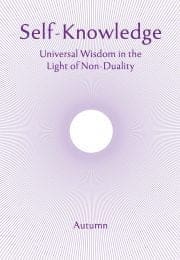The Non-Duality of Shri Shankara
Further extracts from H P Shastri’s essay on the Outline of the Advaita of Shri Shankara
Theory and Practice (continued)
The whole practice is based on vairagya (non-attachment). Our greatest barrier is a desire for self-recognition, self-advertisement. As long as we expect to be recognized as somebody, we are in the muddy pool of deep ignorance. To keep the mind in a liquid state, to prevent it from being crystallized into attachment to worldly objects, we must devote ourselves to the study of the non-dual teachings.
What matters when we leave this body is not what we have thought but what we have contributed by practice to our own enlightenment and to the illumination of others. Mere theories have not brought peace to anybody. Many European scholars have been well versed in the theory of non-duality, but such theories by themselves are, as Swami Rama Tirtha says, ‘roses made of paper, excellent in form but without fragrance and freshness’.
The Role of the Spiritual Teacher
Although the upanishadic wisdom (Shruti*) holds a position of the utmost importance in the practice of the non-dual ideal, we can see that it is not easy to understand its appeal. The meaning is not in the words of Shruti; its real essence is the great experience of the sage which it describes. We cannot know the real meaning of Shruti and its secret without the help of one who has direct experience of the substance of its meaning.
In his commentary on the Kena Upanishad (1:3) Shri Shankara says: ‘Brahman is cognized by repeated instruction of the Teacher (one who has realised the ideal). It is not subject to comprehension through arguments, intellectual explanation, austerity, sacrifice, etc.’
Brahman-cognition is a spiritual experience which is hinted at in the Upanishad. It is to be understood only by the Shastra as explained by the teacher.
By laying down that it is essential to follow a Guru in a spirit of loving service, it is not intended to establish the sovereignty of the learned: the object is to make the path, which is indeed difficult to tread, easier. The teacher does not trespass on the independence of the students, but, by giving them the inner teachings and yet freedom of thought, he or she teaches them how to think under the light of their own experience and not only from bookish learning. It is nonsense to preach that we can obtain the knowledge of truth by our own labours, independent of any other person. The fact is that there is no external instrument of the attainment of enlightenment.
Subscribe or enrol for free guest access to read all of this article and Self-Knowledge online.
Already subscribed or enrolled? Log in:


